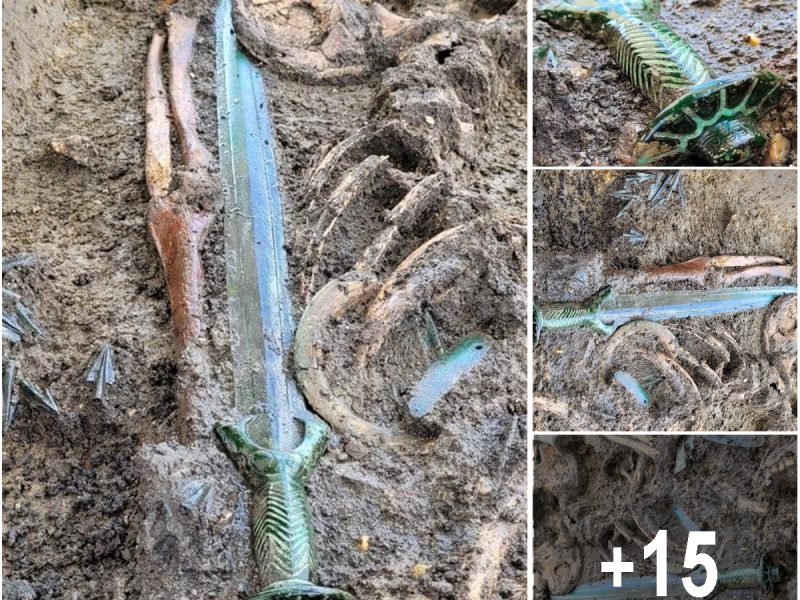Now, how about some surreal hidden places to check out? Grab a flashlight and your backpack… and bon voyage! The trip starts in the mountainous country of Switzerland. You travel to the town of Waltensburg in the eastern part of the country. It’s raining, and it’s very cold, but you still make your way to the bottom part of a mountain, where your first adventure awaits.
After climbing high up in the mountains, you see a strangely shaped castle. To get there, you must walk up an extremely narrow pathway. “Don’t look down!” you think to yourself. You tighten the straps of your backpack and manage to walk along the pass.

Standing at the door of the castle, you can’t really believe what you see: a 13th-century fortress built entirely of stone. Today, all that is left of Kropfenstein castle is mainly its ruins. But their condition is good enough to get an idea of what the place looked like back in its glory days. You take your time to explore the castle inside, but honestly, this place gives you the chills, and you’re ready to move on!
The next place on the list is Turkey. A plane and then a car ride later, you arrive at the city of Çorum in the northern part of the country. On the outskirts of Çorum, you find a valley filled with old overgrown mountains and see the beginning of the trail you’re about to hike. The way is extremely steep, but it leads to a secret door carved in the mountain.
Congratulations, you’ve just arrived at Kapilikaya! The huge door is a massive-arched stone that blocks the entrance to a hidden building. Experts think it has existed since the second century BCE. Unfortunately, the huge door wouldn’t open. So, what’s hidden inside is a mystery to date. It’s guessed that there’s a room inside. Some locals say there’s a treasure hidden there too, but until today, nobody has managed to enter the place to check. Ok, it’s time to get moving before night falls.
Next, you get the unique opportunity to travel to Ethiopia. Wandering around the city of Lalibela, you stumble upon a huge pit carved in the ground. You approach it carefully, and soon enough, you see a magnificent terracotta building, so richly detailed it leaves you mesmerized.
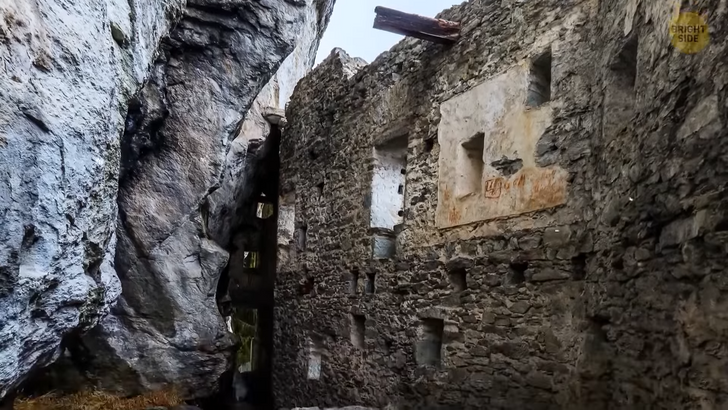
But that’s not all! There are ten other pits just like this one, hiding King Lalibela’s 12th-century buildings. All eleven constructions are different from one another yet share a similar recognizable style. They were hand-carved over the span of 24 years, only with the help of chisels — which is unbelievable given that these buildings are up to 50 ft high! That’s about as tall as 5 African elephants stacked on top of each other! If you could do that.
This unconventional way of construction made them entirely monolithic, meaning they were carved out of just one gigantic piece of rock! Pretty impressive, huh? Once you leave Ethiopia, you grab a flight to southern Italy — right there, on the tip of the boot. No hiking is needed here — phew! Your friend takes you to a site called Sassi di Matera. It’s a Paleolithic city carved in the slope of a steep hill.
You might feel like you’ve traveled in time here as local stone houses and ancient buildings are unlike anything you’ve ever seen before. The site, also known as ’The Sassi,’ is suspected to be one of the first human settlements in Italy, dating back to over 9,000 years ago. Wandering around the town, you might get invited inside one of the cave-like houses. Oh, and as weird as it may sound some of the streets run on top of people’s homes — talk about Paleolithic urban planning! You’re probably becoming an expert on rock-cut architecture by now, but there are still a few sites left on your list.
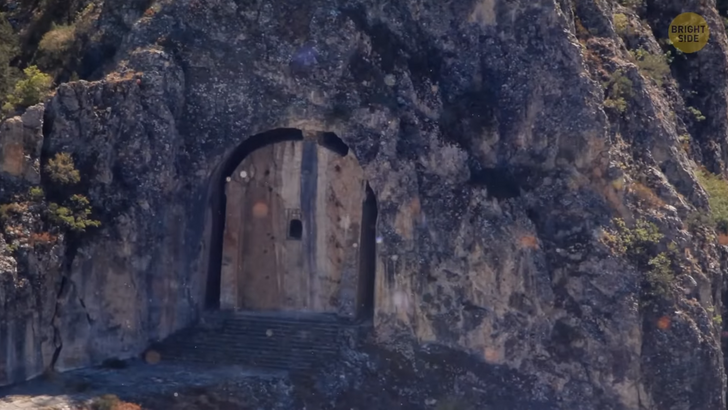
Next off, you head to Slovenia to visit the world’s largest cave castle. This medieval castle was built on top of a 400-ft-high cliff and was designed to be impenetrable! Luckily for you, security is much more relaxed today. Still, if you’re looking for a more challenging and less touristy way inside, you can get into the castle through one of its many underground tunnels. They were built over eight hundred years ago for the owner of the castle. He needed secret passageways to sneak supplies.
Today, Predjama Castle is both enchanting and mysterious. I’d say it depends on whether it’s a warm, sunny day or a cold, stormy night. After this medieval experience, you head on to visit Petra — a magnificent Jordanian monument found in the middle of the desert. To get around here, you’ll need a large supply of water and sunscreen because it’s going to get hot! But this site is worth it — the city of Petra is a marvel of the ancient world.
Back in the 4th Century BCE, this region was a trading hub at the crossroads of commercial routes. Petra was a wealthy city, home to the Nabateans, an Arab Bedouin tribe that thrived in the region for many years. The rock-carved gate-like structure Petra is famous for is called the Pharaoh’s Treasury. It stands at the main entrance to the site and is said to have a treasure hidden inside. You might feel tempted to check it out for yourself, but that’s an adventure for another trip.
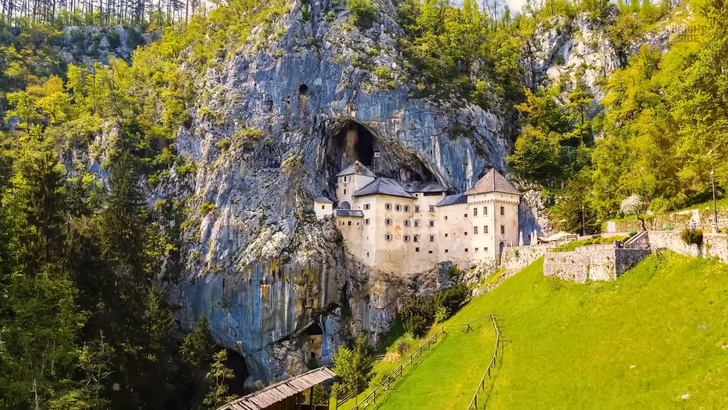
For now, you hop on another plane ride — this time, to the Americas. First, you visit the USA, more specifically, the mountainous state of Colorado. You make your way to Mesa Verde National Park. There, in between the greenery and abundant vegetation, you’ll find over six hundred dwellings built in the cave beneath the cliff, carved deep into the mountainside.
This ancient village is now considered a heritage site. The local Puebloan tribe built it back in the 1190s. One of its main buildings is called the Cliff Palace. It’s a multi-story construction built from sandstone and mud mortar. The Palace alone housed over 150 rooms. If you’re feeling sporty, you might want to visit the Balcony house. To get there, you’ll have to climb a 32-foot ladder.
You’ll get to see a mid-sized village of thirty-eight rooms, including two kivas. Those are traditional chambers that were built by the Puebloans for ceremonial purposes. Still in the US, you make your way to the hills of South Dakota. You’re there to visit one of the world’s most impressive human-made sculptures on — Mount Rushmore. “What’s so mysterious about this place?” you might ask.
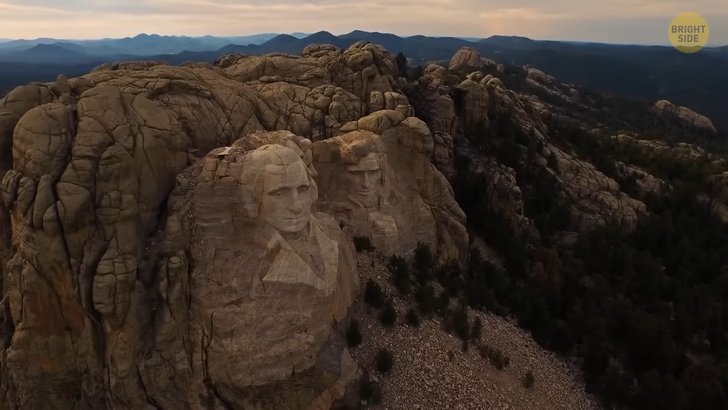
Well, during Mount Rushmore’s construction, a 70-foot-long secret tunnel was built behind the head of Abraham Lincoln. The tunnel was supposed to hold all the documents and artifacts important to the United States’ history. After the designers thought it through, they decided it was better to hide them in a safe box in the floor of the tunnel.
The box holds the story of how Mount Rushmore came to be carved, as well as a brief history of the US and the four presidents depicted on the mountain. Amazing, right? Now, you’re heading down to Machu Picchu, a South American site hidden between the Peruvian mountains. Machu Picchu itself is already a mystery.
Researchers still don’t know why or even how the ancient Inca civilization managed to engineer the stone-built citadel all the way back in 1450 CE. To get there, you must endure a three-day hike, reaching the impressive altitude of 8,000 ft above sea level. Or you can get a train, but that’s no fun, right? You’re here to check on a relatively new discovery.
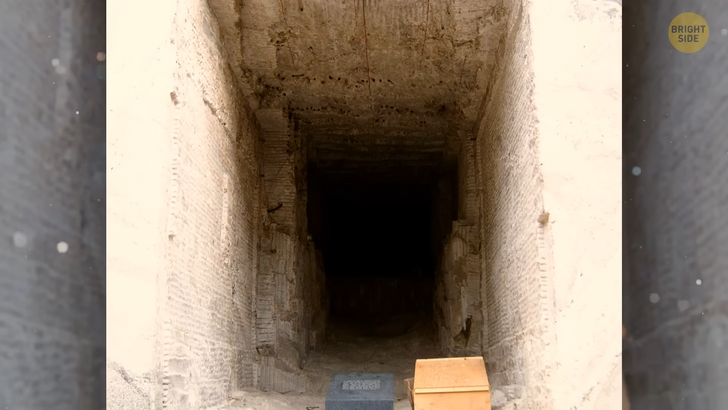
Back in 2010, French engineer David Crespy was taking measurements of the Inca ruins when he noticed a door he’d never seen before. It was sealed off by stones. He went back to the site a few months later with an electromagnetic scanner. The scanner, which could detect objects behind walls, showed there were copious quantities of metals behind that sealed door.
The researcher contacted the Peruvian authorities, requesting to remove the rocks, but they didn’t authorize it. As of today, the door is still locked. Phew! This trip was long, wasn’t it? Make sure to get some rest, Indiana Jones!
